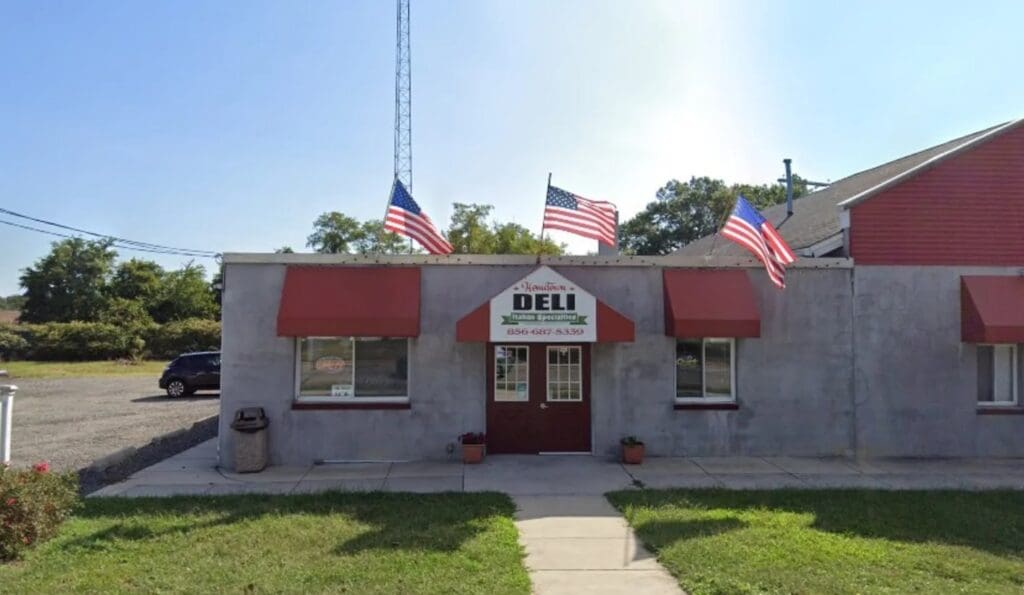What do you get when a failing New Jersey sandwich shop gets a $100 million valuation? According to federal prosecutors, one of the most bizarre fraud cases in Wall Street history—and now, prison sentences.
The infamous father-son team behind a stock market scam involving a tiny, loss-making deli have finally been handed their sentences after pleading guilty to orchestrating a massive “pump-and-dump” operation that duped investors and baffled financial experts.
Peter Coker Jr., 56, who once disappeared overseas to avoid facing charges, received 40 months in federal prison after returning to the U.S. following his arrest in Thailand. His lawyers argued for leniency, citing the brutal conditions he endured while locked up abroad. Coker Jr. also faces deportation after serving his sentence, having renounced his U.S. citizenship years ago and taken up residence in St. Kitts.
His father, Peter Coker Sr., 82, was sentenced to six months in prison, followed by six months of home detention. In addition to incarceration, he’s on the hook for a $500,000 fine and may be required to pay as much as $644,000 in restitution. Though prosecutors initially sought up to five years behind bars for the elder Coker, the judge appeared to take his age and health into account.
Another key player, James Patten, is set to learn his fate in June. This isn’t his first run-in with the law—he previously served time for mail fraud and was barred from the brokerage industry for misconduct.
How Did a Hole-in-the-Wall Deli Become a $100M Company?
The fraudulent scheme, which ran from 2014 to 2022, involved manipulating stock prices of two companies: Hometown International, which owned a modest deli in Paulsboro, New Jersey, and E-Waste, a firm with zero real operations.
By creating the illusion of investor frenzy, the trio inflated stock prices to absurd levels. Hometown’s stock skyrocketed by more than 900 percent, while E-Waste’s value ballooned by nearly 20,000 percent. On paper, both companies appeared to be booming. In reality, one sold sandwiches and the other did nothing at all.
The charade began to crumble in 2021, when hedge fund manager David Einhorn publicly questioned the legitimacy of a deli with less than $40,000 in revenue being worth nine figures. “The pastrami must be amazing,” he quipped in a now-viral letter.
The fallout from the scam reportedly led to nearly $5 million in losses, impacting even elite institutions like Duke and Vanderbilt Universities.
“Why?” Judge Slams the Greed Behind the Scam
During sentencing in a Camden federal courtroom, Judge Christine O’Hearn didn’t mince words.
“What else could have motivated this other than greed?” she asked, pointing out that all three men were already independently wealthy. At the time of sentencing, Coker Sr.’s net worth was estimated at $6 million.
Coker Sr., a former standout college basketball player, addressed the court tearfully. “I’m deeply sorry,” he said. “This has been the most painful chapter of my life. I regret every bit of harm I’ve caused.”
His attorney painted him as a loyal husband of 61 years, a family man broken by the role he played in his son’s downfall. “Knowing what’s happened to his son—and that it was partly his fault—may be punishment enough,” the lawyer argued.
Still, the court imposed real consequences.
What’s Next?
Patten, the third member of the trio, has a sentencing date set for June 10. Given his prior record and role in the plot, legal experts expect additional prison time.
As for investors and financial watchdogs, the case is a stark reminder that even in today’s high-tech markets, old-school scams still thrive—only now, they come with glossier valuations and a lot more zeroes.
The New Jersey Digest is a new jersey magazine that has chronicled daily life in the Garden State for over 10 years.
- Staffhttps://thedigestonline.com/author/thedigeststaff/
- Staffhttps://thedigestonline.com/author/thedigeststaff/
- Staffhttps://thedigestonline.com/author/thedigeststaff/
- Staffhttps://thedigestonline.com/author/thedigeststaff/



